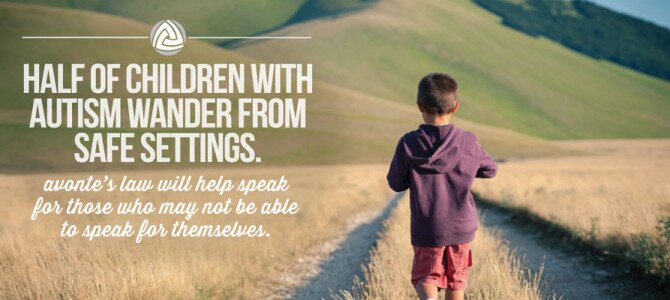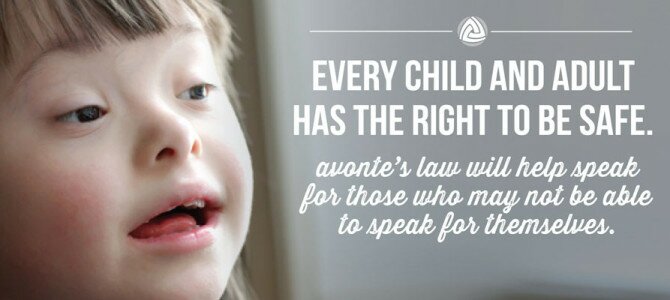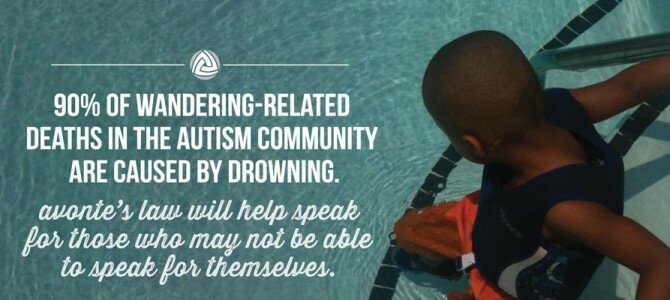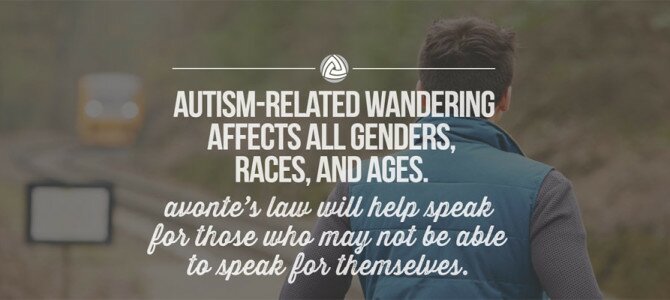Wandering in the autism community is a serious issue that is taking an increasing number of lives. In a 2012 study released by the journal Pediatrics, researchers found that 49% of children with autism wander/elope from safe supervision. According to the National Autism Association, cases involving a child with autism age 9 and younger have ended in death 42% of the time.
Since the beginning of this month alone, six children with autism have died after wandering from a safe setting.
To respond to this growing crisis, a group of national organizations have come together to form The Autism Safety Coalition (ASC). The group’s mission is to advocate for national policies that will increase the public safety of people with autism and other developmental disabilities, including support of Senate Bill 163, Avonte’s Law.
Introduced by Senator Chuck Schumer (D-NY), Avonte’s Law Act of 2015 would help reduce the risk of injury and death relating to wandering behaviors in individuals with autism and other disabilities. “It’s a commonsense bill that will provide much-needed training, education, and access to critical resources,“ says Lisa Wiederlight of SafeMinds.
Since 2011, over 500 individuals with autism have gone missing long enough to prompt search efforts, some costing as much as $2 million for one search.
“Many of these children are drawn to water or other hazardous areas like active roadways or even trains,” says Robert Lowery of The National Center for Missing & Exploited Children. “They also exhibit unique behaviors that make searching for them a challenge.”
“In addition to children and adults with autism, Avonte’s Law would help protect those with Down Syndrome and other disabilities,” says Heather Sachs of the National Down Syndrome Society. “Wandering is a serious issue in the Down Syndrome community, and we believe that this legislation will give schools and families more resources to keep children safe,” she says. In 2012, an 11-year-old girl with Down Syndrome died after wandering away from her school into a nearby pond.
If passed, Avonte’s Law would provide education, training, and resources to law enforcement and other first responder organizations, schools, clinicians, and the public. “This legislation is not about restricting people with intellectual and developmental disabilities, it is about giving them, their families, and communities the knowledge, resources, and tools to prevent and minimize the harm from wandering,” says Leigh Ann Davis of The Arc.
The law is named after Avonte Oquendo, a 14-year-old boy with autism who vanished from his New York City school in 2013. His body was discovered three months later in the East River.
Click here for more information about Avonte’s Law. For prevention resources, please visit the ASC resources page.




